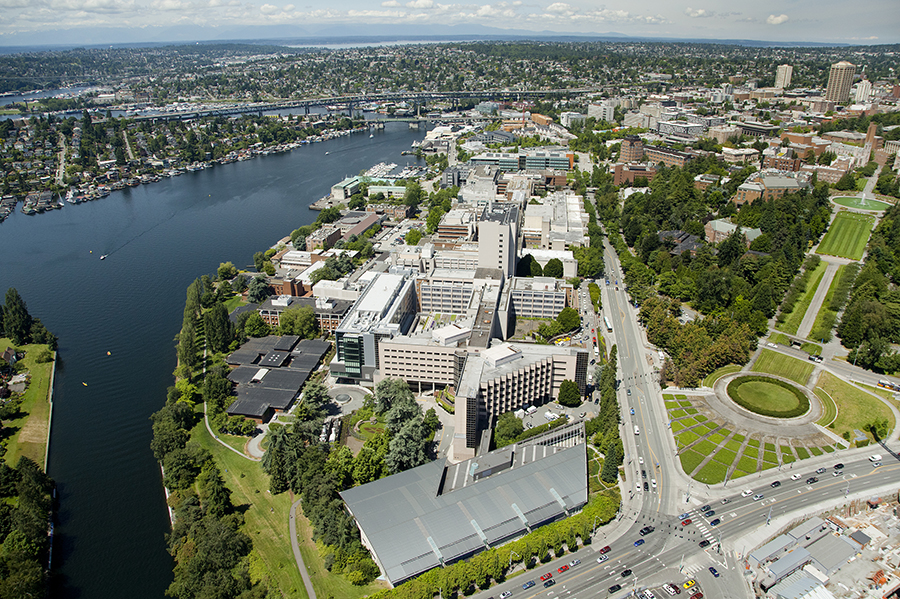
Overview
The Research Vascular Imaging Laboratory (VIL) at the University of Washington is comprised of a multi-disciplinary group of clinician scientists and researchers who are dedicated to advancing scientific knowledge, education, and training in the field of stroke and cerebrovascular disease, with a primary focus on atherosclerosis, intracranial vascular diseases, stroke and dementia research using high-resolution MRI and other imaging modalities such as CT, PET and ultrasound, while leveraging image processing and artificial intelligence. Our goal is to make advanced neurovascular imaging accessible and interpretable by all interested clinicians through improved post-processing and interpretation tools. We also provide training, pathology and clinical trial services.
Mission
The Vascular Imaging Lab is committed to advancing imaging, post-processing and AI technology for identifying the underlying causes of cerebrovascular and cardiovascular disease initiation, progression, and complications.
About
According to the National Center for Health Statistics, cardiovascular disease is the leading cause of death in the United States. Over 70% of these deaths are related to atherosclerosis.
The Vascular Imaging Laboratory has been at the forefront of the development of new imaging techniques that benefit the patients of cardiovascular disease and is recognized as a leading center for atherosclerosis research. Co-founded in 1997 by Drs. Chun Yuan, PhD and Thomas Hatsukami, MD, and co-directed by them till 2021 the lab has pioneered vessel wall MRI research. Currently Niranjan Balu, PhD directs the lab continuing the research charter and expanding vessel wall applications to new directions.
Current Goals
1. Vulnerable plaque detection
- Identify the biologic and imaging characteristics of the high-risk, vulnerable plaque
- Identify individuals at increased risk for the development of high risk plaques who may benefit from early and more aggressive prevention and treatment
2. Pathophysiology of atherosclerosis progression and regression
- Understand the natural history of lesion progression and regression
- Assess the impact of pharmacological treatment
- Correlate biomarkers to the atherosclerotic process by providing state-of-the-art images and technology
3. Translational Research
- Bridging clinical and scientific areas of research to produce new imaging technology, such as multi-center clinical trial administration software.
Services
Clinical Trial Services
The Vascular Imaging Lab provides core laboratory services for a variety of MR imaging-based single- and multi-center clinical trials in populations with atherosclerosis and for pharmacological development. Services include image and data randomization and management, quality assurance, image quality checks, and full image review by trained radiologists using customized FDA compliant software. Please see the Reading Center page for additional information. Contact the VIL Imaging Core Lab for more information on clinical trial services at vil@uw.edu.
Training for MRI of Carotid Atherosclerosis
The Vascular Imaging Lab’s’ years of experience and expertise in carotid MR image review allow us to conduct training in carotid MR image acquisition, and reviewer training sessions for carotid atherosclerosis image review and interpretation. Contact VIL (vil@uw.edu) for more information about upcoming training sessions or to arrange a custom training workshop.
Other Services
Consulting and other services can be performed upon request.
contact
The Vascular Imaging Lab is located in the University of Washington Medicine South Lake Union Campus, which is situated in the heart of Seattle’s growing biotech corridor and within walking distance from Downtown, Belltown, and the Seattle Center. There is a shuttle every 30 minutes to and from the main UW campus and every 40 minutes to and from Harborview Medical Center. Validated parking is available to all visitors.
Address: The Vascular Imaging Lab University of Washington 850 Republican Street Box 358050 Seattle, WA 98109
Google Map, Shuttles, Public Transportation

Niranjan Balu, PhD
Email: ninja[at]uw[dot]edu



